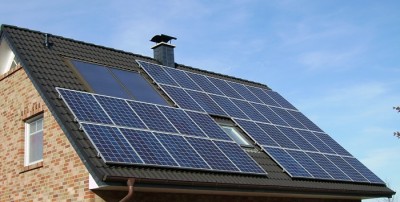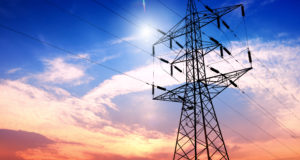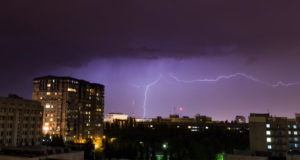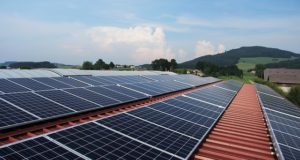So you’re planning to go solar. This is a great option for a number of reasons. After all, solar is an amazing renewable resource that is quite effective at powering a home.
However, since it is one decision that will impact the entire family, you need to take each one of your family members into consideration, especially your children, and take the time to explain not only why you’re taking this step, but also what they should expect from the shift. But even before that, you have to get a few things straight.
Asking yourself a few questions might help.
- Why do you want to tap into solar energy?
- To what extent are you willing to make the commitment?
- Do you have realistic expectations about the benefits of the shift?
As more and more people make the transition from traditional power sources to greener options such as solar and wind power, there is a great deal more information out there to help one prepare. Although the choice in itself is one that will pay off in great rewards both environmentally and financially, there is a learning curve involved. It is this learning curve for which you need to prepare your family. When you do go solar, you will need the cooperation and understanding of the whole family to make it work best.
You essentially have three choices while investing in photovoltaic solar power systems.
Grid-connected – You tap into the power lines whenever your production falls below demand, and on days of high production and low use, the surplus is fed into the grid. You are billed the difference, if any. The downside: When the grid is down, your solar power is down, too.
Harness The Power Of The Sun When The Electricity Goes Out…
Off grid with battery – You’re disconnected from the grid, but have a storage battery to store your surplus, and provide you with extra power whenever necessary. Many people who choose to totally disconnect from the grid do keep a generator on hand for those days when energy demands outweigh power available. However, keep in mind that it does cost money to operate a generator and it is best to try to work your lifestyle around not having to turn it on apart from extreme situations.
Off grid without battery – Completely dependent on solar energy, this option is mostly out of necessity (temporary use in remote areas), or by choice, as in the case of die-hard survivalists. In case of any breakdown, you’re literally in the dark.
People turn to solar energy for several reasons. A little preparation will go a long way to make your transition from conventional energy to solar energy as trouble-free and worthwhile as possible. How you should prepare for it depends on your goals and expectations.
A few of the commonly cited goals follow:
Going solar out of environmental consciousness
A large percent of people who convert to total solar energy are motivated by their commitment to use an environmentally friendly solution for their energy needs. One common characteristic of this group may be that they would have already taken measures to reduce overall energy consumption. That puts them at an advantage when shifting to solar energy, as they know their optimum energy use and can invest accordingly. If you and your family belong in here, you may need only the minimum of preparation.
How you can prepare:
Practice a blackout day once a week. You could also try using only the light of a single candle during dinner. After dinner, go to bed with a flashlight and count how many times you need to switch it on before you finally go to sleep. You can stop doing laundry or vacuuming the floors a couple of hours before the sun goes down; keep in mind those things that drain a considerable amount of energy. Just being aware of how much energy certain appliances and household chores take will help you get more into the mindset of going solar.
Investing in solar power to reduce dependency on grid
Some people invest in solar energy because they want an alternate power source. In uncertain times like this, having a single source of energy, and being completely dependent on it, can be a bit unwise, if not downright scary. They may not be looking at solar power systems as their primary provider. They probably want it as just a standby, and the system they invest in may be barely able to cover their actual needs.
But it is common for expectations to change once the system is in place, and for people to be disgruntled when they find it lacking in capacity. If there is no effort to reduce the consumption of electricity, they may end up paying the same amount in utility bills even after spending money on solar.
How you can prepare:
To sensitize the family to the possibility of power disruptions, you may try unplugging from the grid for an evening. Lock up the refrigerator, too. No lights, no TV, no cold drinks, no hot dinner or warm bath or cozy rooms to retire to. Experiencing first-hand how the lack of electricity might affect their lifestyle can be quite an eye-opener.
World’s Smallest Solar Generator … Priced So Low Anyone Can Afford It!
Try a week without switching on the lights and TV in the evenings. Have candles and flashlights handy, though. Find out how functional the household is with this arrangement. You can print out the meter readings of that week, and compare it with that of a regular week, and see how much difference it made in energy consumption.
Identify exactly what functions can be powered by the solar power system you’re considering. Live a week using only those. If your oven is excluded, how will you prepare your meals?
Read up on all the possible measures to reduce power consumption and follow them diligently for a week. That includes switching off all unused lights and fans when you step out, and keeping the room temperature setting just barely comfortable. What is your lowest possible meter reading? Can you sustain it? Is your proposed solar power system capable of meeting this minimum requirement at the best of times?
Going solar to reduce energy costs
Those who are attracted to solar energy because of its cost effectiveness alone may be a minority. They might want to use solar power as their main source of energy, and expect it to meet all their needs, while being connected to the grid for the benefit of the trade-off. Before they shift to solar power systems, it is essential that their actual energy requirement be calculated. Otherwise, a mismatch between the investment and the return on that investment may become a major concern later. Unless other measures to cut energy consumption drastically are not adopted simultaneously, their initial investment on a system equipped to meet all their power needs could be very high. And it might take years to realize the high initial cost by way of reduction in utility bills.
For example, if energy efficient appliances are not used along with solar power, you may need to tap into the utility lines more often. Then your trade-off during sunny days may not be able to mitigate your extra usage, and you end up paying bills again.
How you can prepare:
When you’re planning to go solar, it’s not a bad idea to get up with the sun, and go down with it as it does in the evening. It takes a lot of practice to reschedule your evenings and to wind up early. You could institute an early-to-bed week for starters. That should give you a fairly good idea about what you can reschedule and what you cannot.
You can assess your power consumption for different purposes by shutting down one function at a time. A few things to try are:
- A whole week without TV in the evening.
- Not using electric grooming devices – hairdryers, hair curlers or straighteners, electric shavers etc., for a month.
- Replacing tub baths with quick showers for a month.
- Not cooking hot dinners for a week. Or, cook outside on a grill or using a wood-fired/propane oven.
- Switching off the air conditioners for a few hours a day or going completely air-conditioner free.
There is quite a bit of difference if you are going to build/purchase an off-grid home with a reliable and efficient solar system compared to still having some reliance on the grid. However, each require a mental preparedness that some people do not expect. While solar power is highly efficient, highly green and virtually free — there is much to consider.
Unforeseen benefits of solar
Making the shift requires a commitment to live within the parameters that nature sets. Keep in mind as well that for many people, making the shift from grid dependency to solar living changes not only the day-to-day routines in a home but many times has a positive impact on family relationships. This is a benefit that one may not think about, but living without grid power requires family teamwork and many times brings people closer together as they gather together to read stories or sing songs and become closer through just spending less time plugged in and more time together.
Whether you go completely off grid or not, every member of the family should be sensitized to the need for conservation and optimal use of power. In the end, being more sensitive to the amount of power used in your household will save you money and make the switch to solar much easier.
What advice would you give someone “going solar”? Share your tips in the section below:
Sign up for Off The Grid News’ weekly email and stay informed about the issues important to you
 Off The Grid News Better Ideas For Off The Grid Living
Off The Grid News Better Ideas For Off The Grid Living





